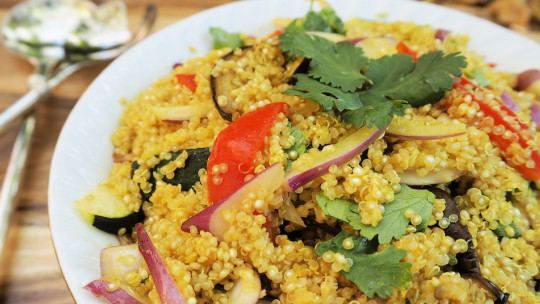When we think about having a healthy lifestyle, the first thing that comes to mind is practicing physical exercise and, obviously, eating correctly. We often associate weight loss with physical and mental well-being. However, that is not always the case. There are diets that sacrifice our health for the goal of losing weight. Something that is not recommended at all
The key to losing weight is that we consume fewer calories than we burn. If we do not want our health to be affected, we must cover our basic food needs. In today’s article, you will find a list of healthy diets so that your body will thank you.
The importance of eating habits: early education
When it comes to eating and nourishing ourselves in a healthy way, it is not worth dieting for a certain period of time, especially if what we want are long-term results. The important thing here is that we acquire healthy eating habits
If we have children, early ages are ideal to instill a healthy lifestyle. Eating habits are formed and developed in childhood, mainly in the family environment. The knowledge of the parents and their beliefs about what is fed or not is transmitted from the first years of life and shapes, to a greater or lesser extent, the future eating behavior of a child. Just as it is necessary to educate in values, it is also necessary to educate in healthy habits.
Food in the current society model
If the family has good eating habits, their habits will have a positive impact on their children, who will benefit when it comes to maintaining long-term health. Nevertheless, Sometimes, eating habits are affected by different aspects :
We live in an era in which many of the foods we consume go through different chemical processes and are sold in large quantities to maximize profitability. Therefore, it is vitally important to educate children (and also the rest of the citizens) in nutritional aspects.
This way it is possible to detect what is healthy from what is not. The consequences of capitalism at a nutritional level are compromising our health through food. This is an increasingly worrying reality and, therefore, in recent decades cases of obesity have increased. Diet, along with the lifestyle of Western societies, is contributing significantly to this epidemic in developed countries.
And… what does psychology say about nutrition?
Society influences our diet, but so does our mind and our emotional and psychological state. The psychologist Jonathan García-Allen, also an expert in nutrition, explains in our article “Psychology and Nutrition: the importance of emotional eating” that: “What we eat not only affects how we feel, but how we feel has an effect in our way of eating.” This suggests that our emotional state is decisive when it comes to eating well, and eating well also has an effect on our emotional health.
For García-Allen, lPsychological factors and weight gain are closely related “Psychology can be an important strategy to improve adherence to a diet when we want to control excessive food intake in cases of overweight. The figure of the psychology professional can be essential in the fight against obesity, because emotional factors are very important when it comes to achieving a permanent change in the habits that affect eating.” Clinical psychologists, in fact, intervene in the treatment of eating disorders.
Types of healthy diets
If you want to eat well to be healthy both physically and mentally, in this article you can find a list of the best healthy diets.
1. Zone diet
The zone diet is a type of diet that is becoming popular because it aims to cover the nutritional needs of macronutrients. To carry it out, You simply have to apply a basic principle: consume carbohydrates, proteins and fats at each meal
5 meals a day are recommended and consumption is as follows: 40% carbohydrates, 30% proteins and 30% fats. Fats should be mainly healthy, that is, monounsaturated and polyunsaturated; and mostly complex carbohydrates, that is, slow absorption.
- If you want to know more about healthy fats, visit our article: “Types of fats (good and bad) and their functions”
2. Mediterranean diet
The Mediterranean diet is one of the best known diets since it is very healthy , especially for the health of our heart. It is known as the Mediterranean diet, because it has its origins in the nutritional habits of southern Europe, which includes countries such as Greece, Spain or Italy.
It is a balanced diet that emphasizes the consumption of varied foods, with fruits, vegetables, cereals, fish, meat. One of the important elements is olive oil, a great source of unsaturated fats. You should not consume a large amount of food, and it is preferable to eat seasonal products. This diet suggests grilling, boiling or consuming raw and fresh foods.
3. Vegan diet
Veganism, rather, is a philosophy or lifestyle in which the person does not eat anything that comes from animals, including eggs and dairy products**. Vegans generally adopt veganism not for health reasons, but also for environmental and ethical reasons**.
Although the vegan diet has received criticism, different studies have confirmed that it is a healthy diet. However, it is necessary to include variety in the diet to benefit from the high nutritional value, and it is necessary to ingest a reasonable amount of vegetable protein and iron. If you want to carry out this type of diet, it is recommended that you go to a professional for information.
- Related article: “18 foods rich in iron that cannot be missing from your diet”
4. Organic diet
The organic diet emerges almost as a necessity today, since many people are not aware of what they are ingesting. Processed products, with high levels of salt, sugar and transsaturated fats are in every corner.
The main axis of this type of diet is that the food must be organic These are characterized because their cultivation process is totally natural, without chemicals, without additives, without pesticides, without fertilizers, without hormones, without GMOs, that is, without toxic and aggressive compounds that contaminate the land, its fruit and, consequently, They are not healthy for people.









